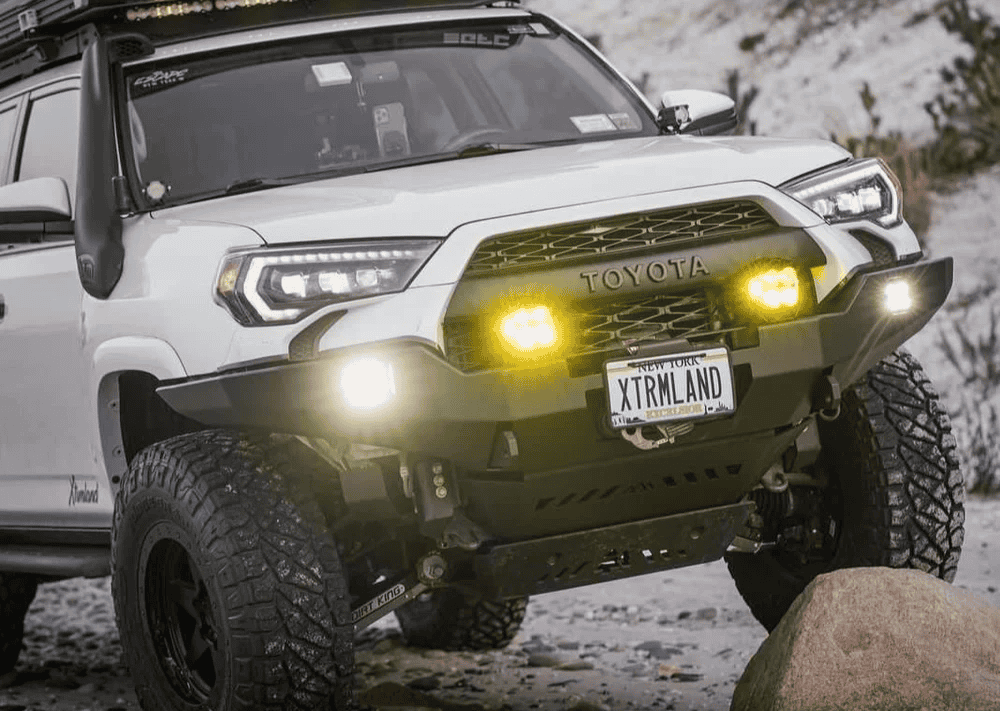Overland Vehicles

A prebuilt expedition truck is a self contained travel platform designed for extended off grid use. Unlike a basic camper shell on a pickup, this configuration pairs a medium duty or heavy duty 4x4 chassis with a purpose built habitat and integrated systems. The result is a rig that can carry meaningful payload, absorb rough terrain, and keep occupants comfortable in a wide range of climates.
Chassis choice determines almost everything. Common platforms include cab chassis models with stout frames, low range transfer cases, and serviceable drivetrains. Wheelbase influences stability and maneuverability, while axle ratios and tire diameter shape crawl ability and cruising efficiency. Approach, breakover, and departure angles matter on rocky tracks and washouts. A capable prebuilt expedition truck balances these geometry numbers with the real space needed for a functional living area.
Payload and GVWR are non negotiable. After accounting for the habitat, water, fuel, batteries, gear, and passengers, the truck must have margin to spare. Running near max weight strains brakes, bearings, and frames, and can shorten component life. Look for honest, documented weight figures, not estimates.
Suspension and tires dictate both comfort and reliability. Heavy duty springs or progressive packs, matching shocks, and correct bump travel improve control on corrugations. Tire choice should fit the truck’s weight class and intended terrain, with load ratings to match. A sensible spare strategy and on board air support long range travel.
Modern builds center on lithium batteries, high output alternator charging, DC to DC modules, and solar. Verify battery chemistry, capacity in usable kilowatt hours, and protective systems like BMS cutoffs and fusing. Shore input and inverter size should match cooking and climate strategy. Cable runs, strain relief, and ventilation around electronics signal a careful installation.
Off grid living depends on clean water and predictable heat. Confirm tank materials, plumbing access, filtration stages, and the ability to winterize. Diesel air heaters, hydronic systems for hot water, and efficient ventilation move the comfort needle. Insulation choices in the habitat influence condensation, noise, and energy load; look for thermal breaks and sealed penetrations.
Range and redundancy keep you moving. Extra fuel capacity, safe storage for recovery gear, and a tire repair setup are table stakes. Underbody protection around steering, sump, transmission, and tanks helps prevent trip ending hits. If the truck will ford creeks or handle dust, confirm sealing around doors, pass throughs, and body joints.
Serviceability is often overlooked. The best prebuilt expedition truck uses widely supported components, with filters, belts, and sensors available in multiple regions. Accessible fuse panels, labeled wiring, and service loops in hoses make field fixes faster. Diagnostic plans matter too, whether you carry a scan tool or rely on indicator lights and simple checks.
Weight distribution affects handling and braking. Tanks and batteries should sit between the axles, low and centered. Verify rear axle ratings with the habitat fully loaded. On the paperwork side, ensure the conversion complies with lighting, restraint, and structural rules where you register and travel. For international routes, emissions standards and parts availability can influence chassis choice.
Pricing spans a wide range depending on chassis class, materials, and systems. Expect a premium for composite habitats, large lithium banks, hydronic heat, and high output alternators. Used prebuilt trucks can offer value, but only with careful inspection.
Bring a flashlight and a methodical plan. Check for frame corrosion, habitat cracks, water ingress around windows and roof hardware, and signs of delamination. Open every service panel. Inspect hose clamps, grommets, wire terminations, and grounds. Run all appliances under load and feel for heat at connection points. Drive the truck over mixed surfaces while listening for suspension clunks, habitat squeaks, and drivetrain vibration. Documentation matters: seek build sheets, wiring diagrams, and maintenance records that match the current configuration.
If you plan big miles, prioritize simplicity where it counts. Mechanical locking hubs, manual switches for critical systems, and redundant control paths can make a difference when electronics misbehave. Spare parts strategy should fit your route and weight plan, from belts and filters to hoses and sensors.
You can refine a prebuilt platform to better fit your routes, seasons, and payload. If you want help choosing upgrades or mapping a future phase, explore our Overland rigs approach, see what a Custom overland upfit looks like, and learn more about our process at Why choose OZK Customs. Our team focuses on complete custom builds and partial upfits that align systems to real travel demands, from suspension and protection to power and interior function.
Make the most of your prebuilt expedition truck. Share your travel style, passenger count, climate range, and gear list, and we will propose an upgrade plan that protects payload, boosts range, and simplifies life on the trail. We build overland rigs that carry you further with less drama. Submit the form below and we will get your plan moving.
Ready to spec or refine a prebuilt expedition truck with confidence? Tell us how you travel, and our team will map the right chassis, power, and interior to your real world needs. Get a build review and upgrade path that protects your budget and timeline. Submit the form to start your plan.
ADDRESS:
6159 E Huntsville Rd, Fayetteville, AR 72701
PHONE:
(479) 326-9200
EMAIL:
info@ozkvans.com